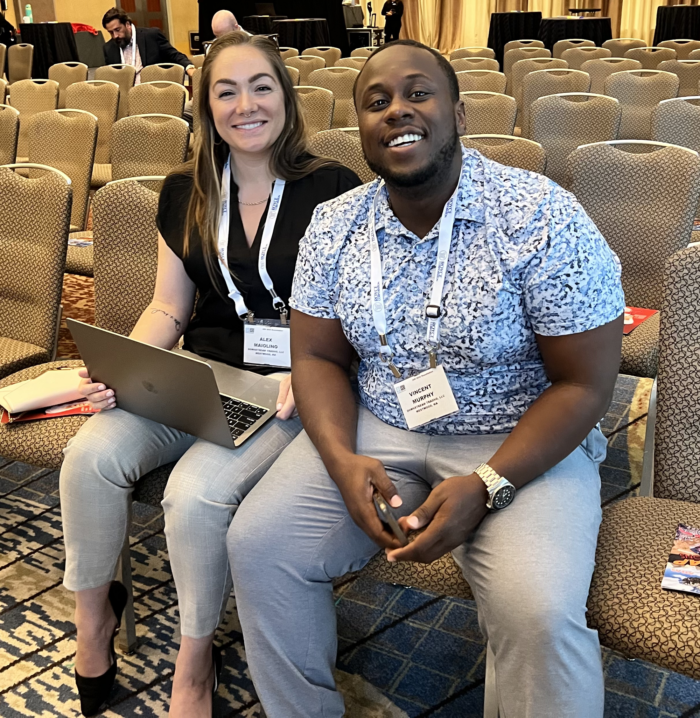Chris Greenfield, vice president of The Federal Metal Company and moderator of the Copper panel at The Roundtables, opened the Sept. 16 session in Chicago by discussing the preparation for the event. “You spend time watching and reading the news and looking at what’s going on in the world,” he says. “It can provoke anxiety. But showing up [to The Roundtables] and seeing the energy in the room and confirming that we’re all here and we’re all still fighting, and thriving, it’s an enlivening experience.”
The copper session speakers were John Gross, President of J.E. Gross Consulting, and Tim Strelitz, co-founder of California Metal-X.
Copper Resurgence in U.S.
“There is a major change occurring in the recycling industry for domestic copper and the people in this [Roundtables] room are right in the middle of it,” Gross says. “The energy crisis, rampant inflation, and rising interest rates all mean that we’re seeing a whole different ball game now as compared to the past several years.”
He noted that companies have begun announcing plans to expand copper recycling in the U.S. “We haven’t had a secondary copper smelting facility in the U.S. in 20 years,” he says. “I think this is just the beginning: once the companies become operational, they’ll grow and expand, and other companies will climb on board. That’s an important trend.” He believes this is a turning point for the return of copper recycling in the U.S.
Strelitz began his presentation by noting that due to the actions of President Xi Jinping, China may have peaked in its pursuit of becoming the largest economy in the world. Strelitz agreed with Gross that North America may be at the beginning of a resurgence of copper recycling. He called out ISRI member SDI LaFarga for recognizing the future of copper production and consumption would return to the U.S.
Strelitz also discussed how Wieland Metals, founded in 1980, has grown to become the largest brass mill in the world, demonstrating the confidence in the reemergence of basic manufacturing in North America. Wieland now dominates the North America wrought brass market and appears intent on continuing its consolidation.
“For almost 40 years we went to work adjusting to circumstance, trying to figure out how we would keep the business while watching other foundries leave. Today it’s the opposite,” he says. “Businesses are coming back, and the problem is whether we have the infrastructure to handle all of it; that’s a really good thing.”
New Generation of Copper Recyclers
Given the large number of new faces at the copper session, Greenfield asked the speakers what advice they would give to recyclers who are getting started in the industry.
Gross told attendees not to believe those who say new things can’t be done. “Don’t let it stifle you regardless of how tough it seems,” he says. “Because the situation has never been easy.”
Strelitz noted copper is an exciting field, and the commodity will always be around. “Copper will always need to be processed and manufactured,” he says. “These commodities will be with us no matter way, especially given the push toward creating a greener future. I think this is a good lane to be in.”
Photo Courtesy of ISRI.










